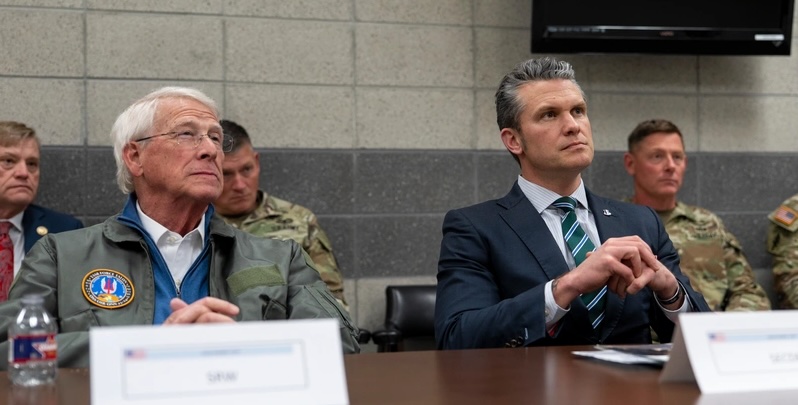Already a subscriber? Make sure to log into your account before viewing this content. You can access your account by hitting the “login” button on the top right corner. Still unable to see the content after signing in? Make sure your card on file is up-to-date.
A top Republican lawmaker on the Senate Armed Services Committee has confirmed that his panel will investigate a major security lapse after a journalist was inadvertently added to a Signal group chat discussing US military plans with senior Trump administration officials.
Some shit you should know before you read: If you’re unaware, yesterday Jeff Goldberg, editor-in-chief of The Atlantic, published a report revealing that he had been added to a private Signal group chat that included several senior Trump administration officials, such as Vice President Vance, Secretary of State Marco Rubio, Secretary of Defense Pete Hegseth, and National Security Adviser Mike Waltz. According to Goldberg, the group chat contained detailed discussions about an upcoming US military strike on Houthi rebels in Yemen, including the timing, target locations, sequencing of the operation, and the specific weapons systems to be used. These conversations reportedly took place hours before the strikes were carried out, raising immediate alarm among national security experts. Despite Hegseth’s public denial that any war plans were shared, the White House National Security Council has since confirmed the authenticity of the messages, prompting widespread concern over the use of an unsecured, non-government messaging app to coordinate and discuss sensitive military operations.

What’s going on now: In an interview with CNN, Senate Armed Services Chairman Roger Wicker (R-MS) confirmed that his committee would be investigating the circumstances surrounding a Signal group chat. He said, “We’re going to look into this and see what the facts are, but it’s definitely a concern,” Wicker said. He added, “It appears that mistakes were made, no question.” Wicker noted that both the House and Senate would be involved in reviewing the incident, suggesting broad bipartisan concern over potential breaches of protocol and security.
Senator Jim Risch (R-ID), who chairs the Senate Foreign Relations Committee, echoed Wicker’s stance and announced a separate investigation. Speaking to reporters, Risch said, “This is a matter that’s going to be investigated, obviously. We’re going to know a lot more about it as the facts roll out.” Risch also confirmed that he had spoken with Secretary of State Marco Rubio “at length” following the report from The Atlantic.
While Rubio reportedly had “no knowledge” of a journalist being on the chat, he did not explain why top national security officials were communicating over an unsecured commercial messaging platform. He said that “no one at the State Department was aware at all there was the leakage that was going on.”
Despite these confirmations and the National Security Council validating the authenticity of the messages cited by The Atlantic, some officials involved in the chat have publicly questioned the credibility of the reporting. Defense Secretary Pete Hegseth strongly denied any wrongdoing, claiming, “Nobody was texting war plans, and that’s all I have to say about that.” He also attacked The Atlantic’s editor-in-chief Jeffrey Goldberg, calling him “a deceitful and highly discredited, so-called journalist who’s made a profession of peddling hoaxes time and time again.”
National Security Advisor Mike Waltz, who reportedly initiated the Signal group chat, has echoed Hegseth’s statements and alluded that the media is trying to use this moment to discredit all of President Trump’s accomplishments in his first 60 days in office. Meanwhile, President Trump has defended Waltz, saying that he had “learned a lesson” and is “a good man.”






